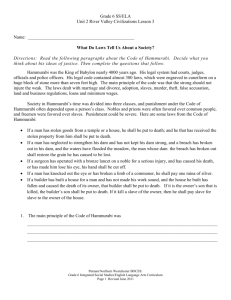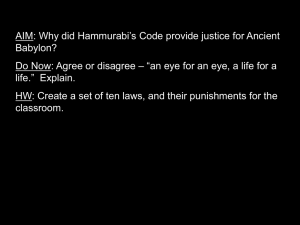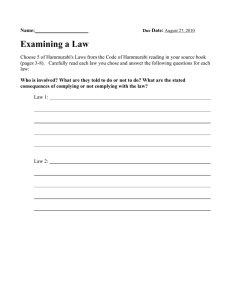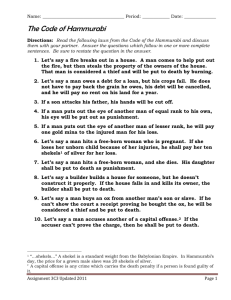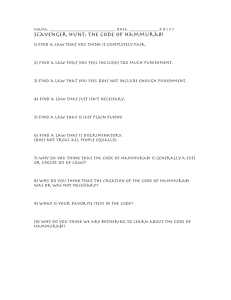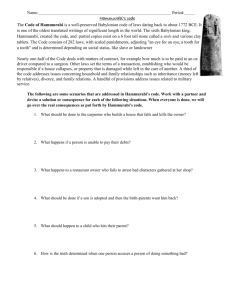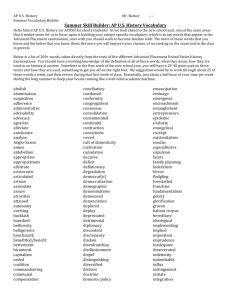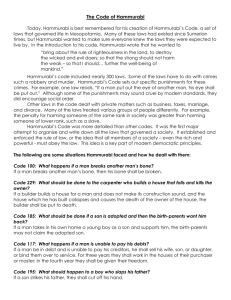THE OLDEST CODE OF LAWS IN THE WORLD
advertisement
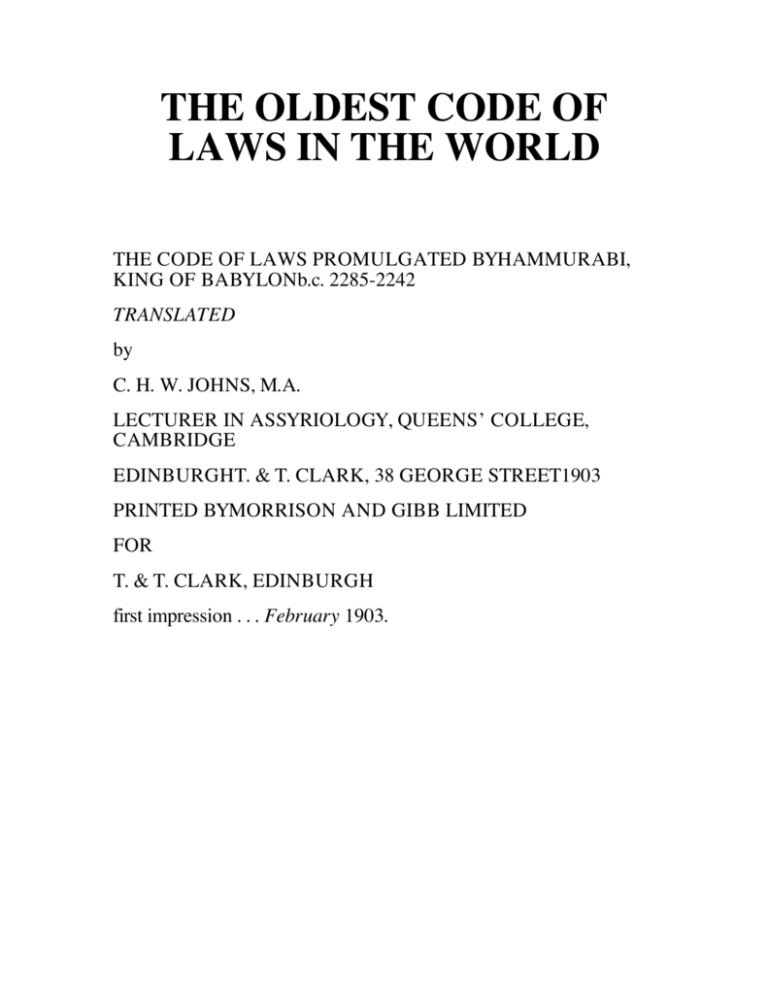
THE OLDEST CODE OF LAWS IN THE WORLD THE CODE OF LAWS PROMULGATED BYHAMMURABI, KING OF BABYLONb.c. 2285-2242 TRANSLATED by C. H. W. JOHNS, M.A. LECTURER IN ASSYRIOLOGY, QUEENS’ COLLEGE, CAMBRIDGE EDINBURGHT. & T. CLARK, 38 GEORGE STREET1903 PRINTED BYMORRISON AND GIBB LIMITED FOR T. & T. CLARK, EDINBURGH first impression . . . February 1903. INTRODUCTION [excerpt] The Code of Hammurabi is one of the most important monuments in the history of the human race. Containing as it does the laws which were enacted by a king of Babylonia in the third millennium B.C., whose rule extended over the whole of Mesopotamia from the mouths of the rivers Tigris and Euphrates to the Mediterranean coast, we must regard it with interest. But when we reflect that the ancient Hebrew tradition ascribed the migration of Abraham from Ur of the Chaldees to this very period, and clearly means to represent their tribe father as triumphing over this very same Hammurabi (Amraphel, Gen. xiv. 1), we can hardly doubt that these very laws were part of that tradition. At any rate, they must have served to mould and fix the ideas of right throughout that great empire, and so form the state of society in Canaan when, five hundred years later, the Hebrews began to dominate that region. Such was the effect produced on the minds of succeeding generations by this superb codification of the judicial decisions of past ages, which had come to be regarded as ‘the right,’ that two thousand years and more later it was made a text-book for study in the schools of Babylonia, being divided for that purpose into some twelve chapters, and entitled, after the Semitic custom, Nînu ilu sirum, from its opening words. In Assyria also, in the seventh century b.c., it was studied in a different edition, apparently under the name of ‘The Judgments of Righteousness which Hammurabi, the great king, set up.’ These facts point to it as certain to affect Jewish views before and after the Exile, in a way that we may expect to find as fundamental as the Babylonian influence in cosmology or religion. C. H. W. JOHNS. Cambridge, January 31, 1903. THE TEXT OF THE CODE [excerpt] § 228. If a builder has built a house for a man and has completed it, he shall give him as his fee two shekels of silver per sar of house. § 229. If a builder has built a house for a man and has not made strong his work, and the house he built has fallen, and he has caused the death of the owner of the house, that builder shall be put to death. § 230. If he has caused the son of the owner of the house to die, one shall put to death the son of that builder. § 231. If he has caused the slave of the owner of the house to die, he shall give slave for slave to the owner of the house. § 232. If he has caused the loss of goods, he shall render back whatever he has caused the loss of, and because he did not make strong the house he built, and it fell, from his own goods he shall rebuild the house that fell. § 233. If a builder has built a house for a man, and has not jointed his work, and the wall has fallen, that builder at his own cost shall make good that wall.
